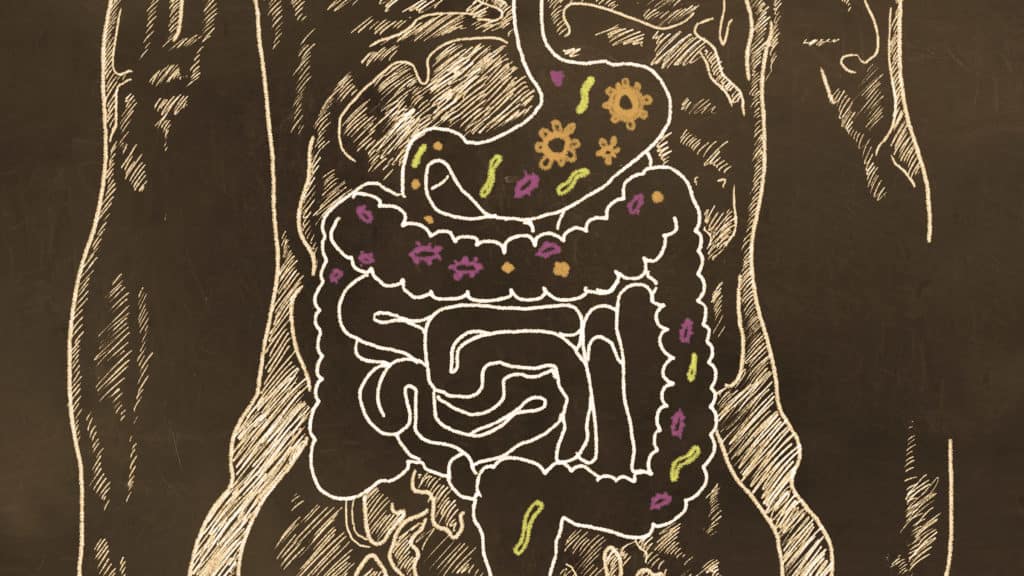The Human Microbiome: Sharing Our Bodies
This session was sponsored by ILSI, the ILSI Research Foundation, and ILSI branches worldwide.
The role of microbiota in health is an exciting field in nutrition science given the symbiotic relationship between the human host and its trillions of microorganisms. We are just beginning to understand their potential in mitigating disease and promoting health. In this session, designed for nutritionists, dietitians, and other health professionals, presenters described this complex, interdependent relationship; what we know about the role microbiota play in nutrient metabolism; and if and how we can modify the diet to improve our individual microbiomes.
Visit our "Focus on the Microbiome" page for other upcoming, current, and recent activities: ILSI and the Microbiome
Sharing Our Bodies: The Symbiosis of Humans and Our Microbiota: A High-Level Overview of Research in the Field
Christian Hoffmann, PhD (Session Chair)
University of São Paulo, Brazil
Exploring the Role of the Major Gut Microbiota Clusters on Nutritional and Functional Benefits of Nutrients and Non-nutrients
Ian Rowland, PhD, RNutr
University of Reading, United Kingdom
The Role of Microbiota in Nutrient Metabolism and Bioavailability
Fabrice Vaillant, PhD
Corpoica, Colombia
Mapping Asian Gut Microbiota Across Age and Geography – What are the Health Implications?
Yuan Kun Lee, PhD
National University of Singapore, Singapore
Sharing Our Bodies: The Symbiosis of Humans and Our Microbiota: A High-Level Overview of Research in the Field
Christian Hoffmann, PhD (Session Chair)
University of São Paulo
Brazil
Our knowledge about human gut microbiota, its resident species and their functional interaction capacity with its host is growing rapidly in recent years. This has been made possible by the advent of the so called next generation DNA sequencing technologies. Studies conducted with these techniques have yielded a large amount of information regarding the gut microbiome across human populations. They have provided important insight onto what constitutes a 'healthy gut microbiota' while furthering our understanding of the role of gut microbes in human intestinal and metabolic diseases. Diet, genetic background and the immune system status are some of the factors that control and modulate the human gut microbiome. One of the main goals of research being conducted worldwide at the moment aims to use this knowledge to modify and control host microbiome interactions to aid in disease treatment and even prevent them in the first place. This presentation will cover a short overview of the methods and the current state of the art in gut microbiome studies, the factors that are correlated with the structure and function of the healthy human microbiome, such as diet and host genetic background, and some examples of how we can manipulate the gut microbiome to improve the host’s health.
Exploring the Role of the Major Gut Microbiota Clusters on Nutritional and Functional Benefits of Nutrients and Non-nutrients
Ian Rowland, PhD, RNutr
University of Reading
United Kingdom
The biotransformation capabilities encoded in the gut microbiome greatly exceed that of the host genome, these include functions involved in the breakdown, metabolism and absorption of dietary components. As such, the gut microbiota is a key factor in shaping the biochemical profile of the diet and, therefore, its impact on host health and disease.
The ILSI Europe Functional Food Task Force set up a working group to gain a perspective on the state of the art in this area with a focus on the role played by the gut microbiota in metabolism and absorption of key nutrients and non-nutrients. This has taken the form of a systematic review focussing on energy and the following candidate dietary substrates: protein, carbohydrate, fat, resistant starch, dietary fibre and polyphenols. In reviewing the literature, particular attention was paid to the characterisation of the microbiotas which are predominantly implicated in each case, and indications of the potential health impacts.
In addition to this systematic review, we have conducted a detailed evaluation of the main gut microorganisms and microbial pathways involved metabolism of these dietary components and furthermore we have critically examined existing and novel methodologies used to study diet-gut microbial interactions including ‘omics’ techniques, mathematical modeling, isolated microbes and enzyme assays.
It is anticipated that a more thorough understanding of the role the gut microbiota plays in the metabolism of dietary substrates and of the relevant members of the microbiota and community profiles holds considerable promise to facilitate the development of novel health-orientated dietary strategies.
Keywords: gut microbiota, microbiome, nutrient metabolism, health impact
The Role of Microbiota in Nutrient Metabolism and Bioavailability
Fabrice Vaillant, PhD
Corpoica
Colombia
A community can be defined according to who are the members and what, as a whole, it can create. The same approach can be implemented for the characterization of gut microbiota; genomic seeks to identify microorganisms and metabolomic assesses the key outputs of their overall metabolism. Both are complementary approaches to reflect the role of microbiota and the complexity of interactions between gut microorganisms and host, resulting in an increase bioavailability of the metabolites produced. So far, the concept of bioavailability should be redefined from the view point of human nutrition taking into account the key role of microbiota. A large number of nutrients are not utilized as such and enters the intestinal tract where they can be metabolized by microbiota into more bioavailable compounds that can be absorbed, distributed by systematic circulation, used or stored by the body. Well-known examples include butyrate and short-chain fatty acids from dietary fibres, conjugated linoleic acid from linoleic acid but other more specific pathways have been identified for dietary polyphenol such as equol from isoflavones, urolithins from ellagic acids and ellagitannins, enterolactones and enterodiol from lignans. Nonetheless, the list of nutrient precursors and resulting gut microbial metabolites is much longer, as the untargeted metabolomic approach continues to unveil new metabolic pathways. These metabolites are inevitably bioactive when they are absorbed as they can modulate host response.
Mapping Asian Gut Microbiota Across Age and Geography – What are the Health Implications?
Yuan Kun Lee, PhD
National University of Singapore
Singapore
Gastrointestinal microbes play important roles in the health and disease of the host. It is of great interest to characterize both composition and succession of the intestinal microbiota. Such perspective studies provide markers for the stage of health and positive guidance for microbial colonization through interference. It is expected that basal microbiota profile among the Asian is different from that of the Westerner and African, as they have very different dietary and cultural habit and ethnicity, and that may partly explain the differences in susceptibility to different diseases.
Asian Human Microbiome Project was initiated in 2009 to examine the microbiota profile among healthy youngsters in 13 Asian cities (Phase I) as a pilot study. In 2013 a Phase II to examine the adult and elderly, and in 2014 a Phase III to examine the mother and infant pairs were lounged. Phase IV in ongoing and focuses on microbiome and disease correlation. The Phase I study data indicate that variation in the gut microbiota of Asian children is continuous, yet clusters into two groups, each defined by Prevotella (P-enterotype of the South East Asia and Northern Asia) and Bifidobacterium/Bacteroides (BB-enterotype of the Central and East Asia). This trend mirrors the geographical location, immigration pattern, and diet of these countries. The profile is confirmed by the microbiome of the adults and elderly of the respective cities, albeit a general decline in Bifidobacteriaceae, increase Enterobacteriaceae, and overall decrease in bacterial diversity. Different degree of positive and negative correlation was observed between the bacterial groups, and may play roles in the health and disease in various Asia regions.
Comparing and contrasting microbiota of the Asian, European, North American and African provide insights to human gut microbiome composition and the determining factors. Fat and carbohydrate diet are driving factors for the enterotype after weaning. The role of ethnicity will be reported. The implication on diseases, such as infant gastrointestinal infection, obesity-link diabetes, and dementia will be discussed.
Christian Hoffmann, PhD
University of São Paulo
Brazil
Dr. Christian Hoffmann is an Assistant Professor of Microbiome and Nutrition, at the Dept of Food Sciences and Experimental Nutrition, at the University of São Paulo, Brazil. He is also a research fellow at the Laboratory of Applied Immunology, at the University of Brasilia. Dr Hoffmann obtained his PhD in Biological Sciences at the Federal University of Goiás, in Brazil, while developing his thesis work under the mentorship of Dr. Frederic Bushman, at the University of Pennsylvania. His experience is focused on the molecular ecology of microbial systems, including soils, microbial mats and the host-related microbial ecosystems. For the last 10 years, he has centered his research questions on the human gut microbiome, using both human studies as well as animal models. Key aspects of this research include the influence of the gut microbiome on health and disease, the modulation of the gut microbiome through diet and the immune system, especially through the use of unavailable carbohydrates.
Ian Rowland, PhD, RNutr
University of Reading
United Kingdom
Ian graduated with a BSc (Hons, First Class) and PhD in microbiology from University College London a long time ago. Prior to joining the University of Reading in 2007 as the Hugh Sinclair Professor of Human Nutrition, he was head of nutrition at the University of Ulster and Director of the Northern Ireland Centre for Food and Health. Currently, he is Editor in Chief of the European Journal of Nutrition. His main research area is the interaction of diet, gut microbiota and health with a particular focus on the metabolism of phytochemicals and impact on health. In 2005 he was awarded an honorary doctorate from the University of Gent in Belgium for his work on nutrition and cancer. He has published over 400 papers and is on the Thompson-Reuters List of Most Highly Cited Researchers 2016.
Fabrice Vaillant, PhD
Corpoica
Colombia
Fabrice Vaillant (PhD) is a research scientist with the Department of Food Quality within the International Research Center in Agronomy for Development (CIRAD). He was hosted by the University of Costa Rica during last decade and now, by the Colombian Research Corporation for Agriculture (CORPOICA). Within his research unit, he works on the characterization of tropical fruits, their potential health benefits using untargeted metabolomic approaches and the development of innovative processes that preserve very high quality and are viable for small-scale sustainable rural agro-industries. He has authored/co-authored more than 60 scientific publications and book chapters in these fields, including 5 patents.
Yuan Kun Lee, PhD
National University of Singapore
Singapore
Prof. Yuan Kun Lee, Department of Microbiology & Immunology, Yong Loo Lin School of Medicine, National University of Singapore. His research interests include the effect of diet on the cross-talk between the gastrointestinal microbiota and the host. Prof. Lee has published 135 papers in international peer reviewed scientific journals, contributed 30 chapters in books, and authored 5 monographs. In addition, he has 3 patents to his name. He is the immediate past President of the International Union of Microbiological Societies (IUMS). Prof. Lee is President of the Singapore Society of Microbiology and Biotechnology, and the Asian Federation of Societies for Lactic Acid Bacteria. He serves on the editorial board of the Critical Reviews in Microbiology (Associate Editor), Scientific Reports, Beneficial Microbes, Bioscience of Microbiota, Food & Health. Prof. Lee received his Ph.D. from the University of London, UK.
Click here to download a handy Twitter guide to this session during ICN.




